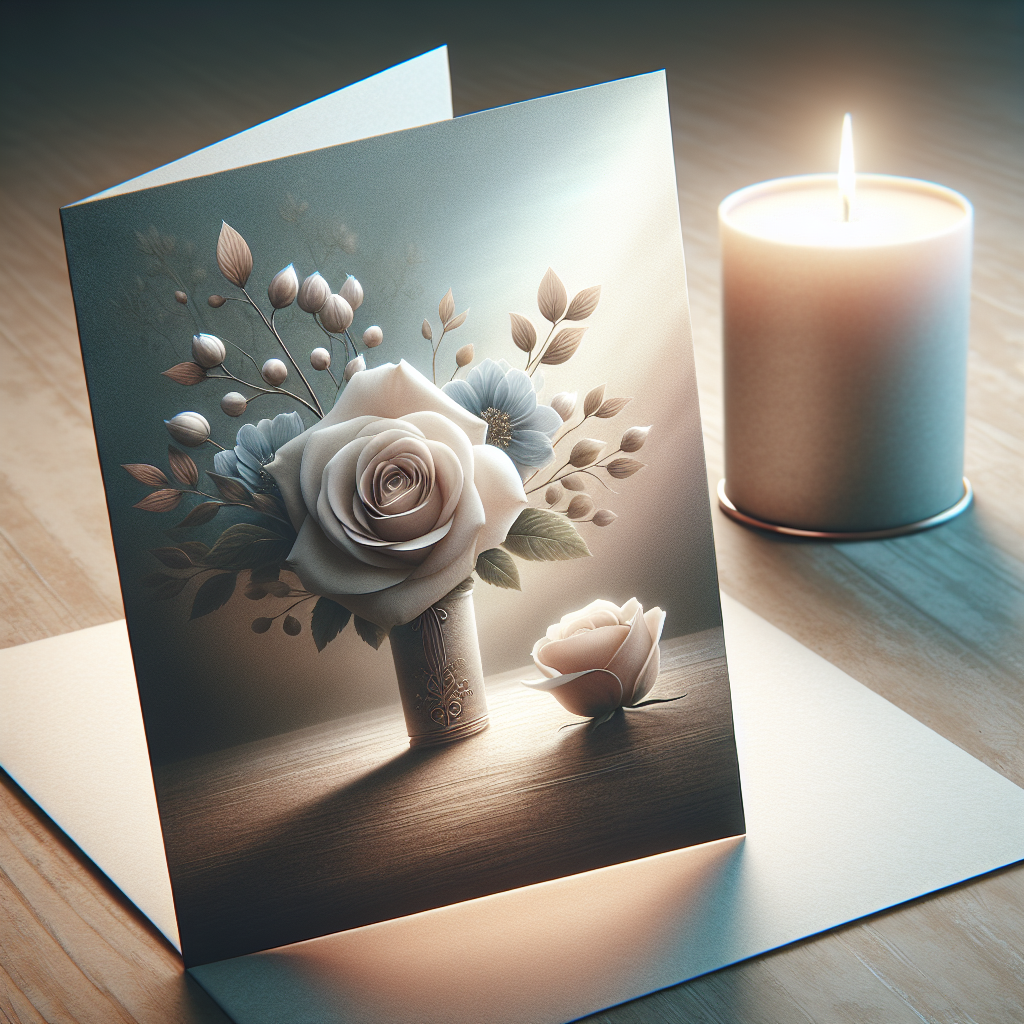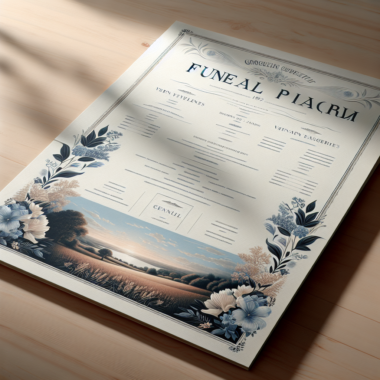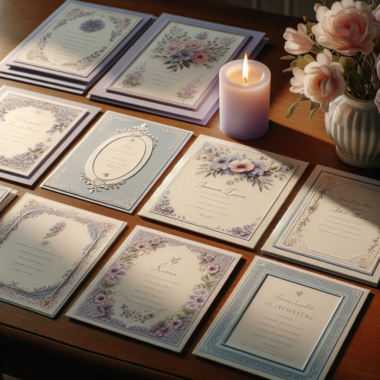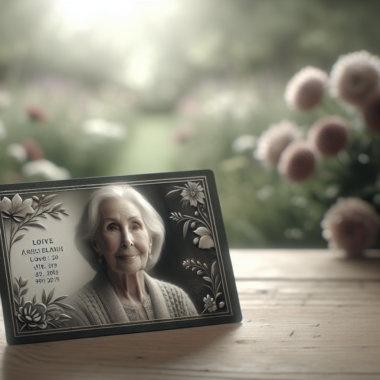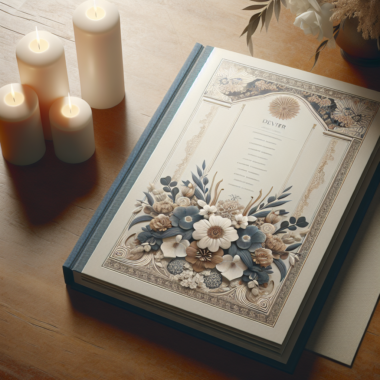In the wake of a loved one’s passing, expressing gratitude to those who have offered support and condolences can be both a challenging and comforting task. Funeral thank you cards provide a meaningful way to acknowledge the kindness, love, and sympathy extended by friends and family during a difficult time. These cards are not just a formality; they are a heartfelt gesture that conveys your appreciation and helps maintain the bonds of community and friendship.
Funeral thank you cards serve multiple purposes. They can be used to thank those who attended the funeral or memorial service, sent flowers, made donations, or offered other forms of support. It’s a way to ensure that everyone who contributed to the remembrance of your loved one knows how much their efforts meant to you and your family.
Choosing the right words and format for your funeral thank you cards can be daunting. However, with some guidance and thoughtful consideration, you can craft messages that genuinely express your gratitude. This article will delve into various aspects of funeral thank you cards, from selecting the appropriate design to finding the right wording, and ensure that your sentiments are conveyed with the utmost sincerity.
Ready to start expressing your gratitude? Order funeral & memorial prints today and find the perfect cards to honor those who stood by you during your time of need.
Importance of Sending Thank You Cards
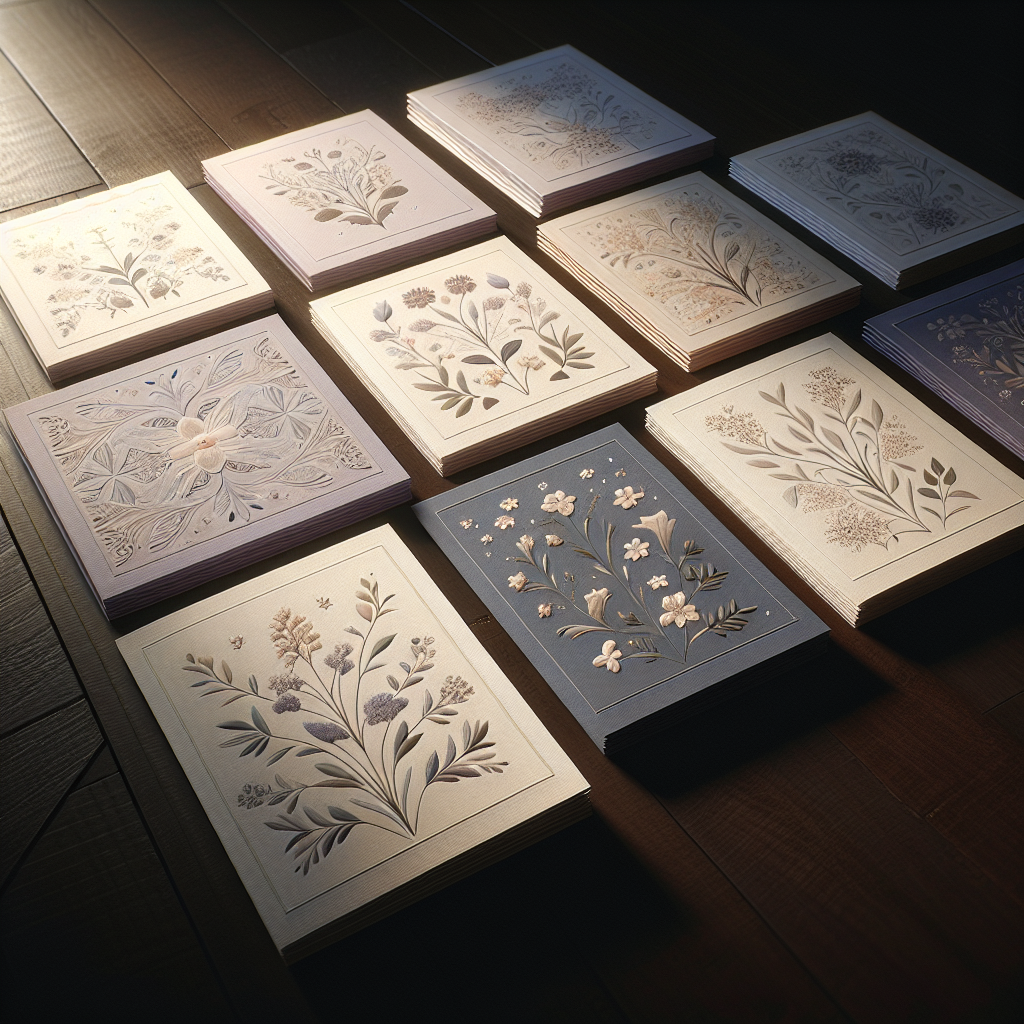
Sending funeral thank you cards is a deeply meaningful gesture that goes beyond simple etiquette. It serves as a tangible way to acknowledge the support and kindness received during one of life’s most challenging moments. While the emotional and logistical demands following a loss can be overwhelming, taking the time to send these cards offers several important benefits.
Firstly, funeral thank you cards provide an opportunity to express genuine gratitude. The people who attended the service, sent flowers, or supported you in other ways did so out of love and respect. Acknowledging their efforts with a thoughtful card helps to strengthen relationships and ensures that your appreciation is clearly communicated.
Secondly, these cards help in the healing process. Writing out your gratitude allows you to reflect on the kindness shown, which can be comforting and therapeutic. It can also provide a sense of closure, marking the end of the immediate aftermath of the loss and the beginning of a new phase of remembrance and healing.
Lastly, sending thank you cards upholds a tradition of respect and courtesy. In many cultures and communities, it is seen as a significant part of the mourning process. By sending these cards, you honor not only the people who supported you but also the memory of your loved one.
Therefore, while it may seem like a small task, the act of sending funeral thank you cards carries substantial emotional and social weight. It is a simple yet powerful way to show that, even in grief, you recognize and appreciate the love and support that surrounds you.
Choosing the Right Funeral Thank You Cards

Selecting the appropriate funeral thank you cards is an important step in expressing your gratitude. The right card can convey your heartfelt thanks and serve as a lasting memento for those who supported you during your time of loss. Here are several factors to consider when choosing the perfect thank you cards:
Design and Aesthetics: The design of the thank you card should reflect the personality and taste of your loved one. Many people opt for classic, understated designs that convey a sense of solemnity and respect. Consider elements like color, imagery, and typography to ensure the card is both beautiful and appropriate for the occasion.
Quality of Materials: The quality of the paper and printing can make a significant difference. High-quality materials not only look and feel nicer but also demonstrate the care and thoughtfulness you have put into this gesture. Opt for thicker cardstock and professional printing to ensure your cards leave a strong impression.
Personalization: Adding a personal touch to your thank you cards can make them even more meaningful. Consider including a photo of your loved one, a favorite quote, or a brief personal message. Many printing services offer customizable options that allow you to create a unique and memorable card.
Message: The wording inside the card is crucial. It should be sincere and heartfelt, reflecting your true feelings of gratitude. While it’s perfectly acceptable to use a standard template, adding a few personal lines can make your message more impactful.
Choosing the right funeral thank you cards involves thoughtful consideration and attention to detail. By selecting a card that truly represents your sentiments and the memory of your loved one, you ensure that your gratitude is conveyed in the most meaningful way possible.
Wording for Funeral Thank You Cards
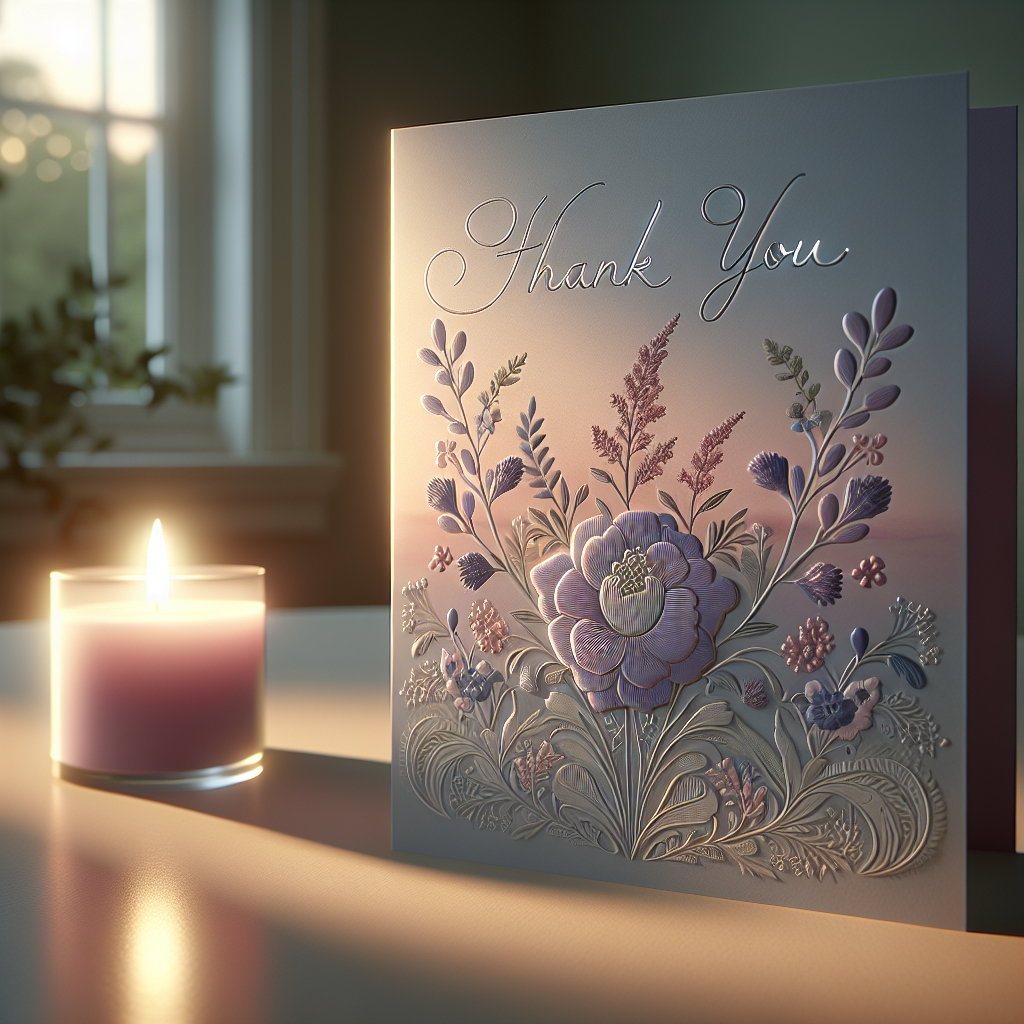
Crafting the appropriate wording for funeral thank you cards can be challenging, especially during a time of grief. However, the right words can provide comfort and convey your appreciation effectively. Here are some tips and examples to help you find the perfect wording:
Start with a Greeting: Begin your message with a warm greeting. Common choices include “Dear [Recipient’s Name],” or simply “To our dear friends and family.” This sets a personal and respectful tone for your note.
Express Your Gratitude: Clearly state your appreciation for the specific support or gesture that the recipient provided. Mentioning the specific act, whether it was attending the service, sending flowers, or offering words of comfort, makes your thanks more personal and sincere. For example, “Thank you for your beautiful flower arrangement and for attending the memorial service. Your presence meant so much to us during this difficult time.”
Add a Personal Touch: Including a personal anecdote or memory can make your message even more heartfelt. This could be a shared memory with the recipient or a special moment involving your loved one. For instance, “Your words of comfort reminded us of the wonderful times we shared with [Loved One’s Name], especially that summer barbecue we all enjoyed together.”
Close with Warmth: End your note with a warm closing that reflects your gratitude and affection. Phrases like “With heartfelt thanks,” “With sincere appreciation,” or “Gratefully,” followed by your name or family name, are excellent choices. For example, “With heartfelt thanks, The Johnson Family.”
Here are a few sample messages to inspire you:
- “Dear [Recipient’s Name], thank you for your kindness and support during this difficult time. Your presence at the memorial service brought us great comfort.”
- “To our dear friends and family, your loving support and beautiful flower arrangement meant the world to us. We are deeply grateful for your compassion.”
- “Dear [Recipient’s Name], we appreciate your heartfelt words and the lovely card you sent. Your thoughtfulness has been a source of strength for us.”
Finding the right words for funeral thank you cards may take some time, but remember that the sincerity of your message is what truly matters. These cards are a way to honor the memory of your loved one and acknowledge the support of those who stood by you.
When and How to Send Thank You Cards

Deciding when and how to send funeral thank you cards is essential in expressing your gratitude during such a sensitive time. While there are no hard and fast rules, following some general guidelines can help you navigate this process with grace.
Timing: It is generally considered appropriate to send out thank you cards within two to three weeks after the funeral or memorial service. However, given the emotional toll, it’s perfectly acceptable to take more time if needed. Your friends and family will understand that grieving is a process, and waiting a little longer to send a heartfelt note is better than rushing through it.
Who Should Receive a Card: It’s important to thank those who provided support in various forms. This includes individuals who:
- Attended the funeral or memorial service
- Sent flowers, cards, or gifts
- Made charitable donations in the deceased’s name
- Provided meals, transportation, or other assistance
- Offered emotional support or kind words
How to Send: Personalization is key when sending funeral thank you cards. Handwriting your notes is preferable, as it adds a personal touch that printed messages may lack. If handwriting each card seems overwhelming, consider enlisting the help of family members or close friends. Ensure each card includes a specific mention of what you are thanking the recipient for, as this makes the message more meaningful.
For larger groups, such as colleagues or community organizations, a single heartfelt note addressed to the entire group may be appropriate. This can be displayed on a bulletin board or shared during a meeting.
Addressing the Envelope: Be sure to address the envelope formally with the recipient’s full name and address. This small detail shows respect and consideration, reinforcing the sincerity of your gratitude.
Remember, the act of sending funeral thank you cards is a meaningful way to honor those who supported you during a challenging time. Taking the time to express your appreciation can provide some solace, knowing that you have acknowledged the kindness of others.
Personalizing Your Thank You Cards

Personalizing your thank you cards adds a heartfelt touch that conveys your genuine appreciation to those who supported you during a difficult time. While pre-printed messages can be convenient, adding personal elements can make your gratitude resonate more deeply with the recipients.
Handwritten Notes: One of the most effective ways to personalize your thank you cards is by including a handwritten note. A few sentences that specifically mention the recipient’s act of kindness can make a significant impact. For example, you might write, “Thank you for the beautiful flowers you sent. They brought a touch of light to our home during this dark time.”
Include a Photo: Adding a photo of the deceased, especially one that captures a cherished memory, can make the thank you card more meaningful. This not only personalizes the card but also provides a keepsake for the recipient.
Choose Custom Designs: Opt for cards that reflect the personality or interests of your loved one. Whether it’s a favorite color, a beloved quote, or an image that holds special significance, these custom elements can make the card feel more intimate and special.
Special Touches: Small additions, like a pressed flower, a piece of ribbon, or a special seal, can elevate the card’s presentation. These little details show that you’ve taken extra time and care, which will be appreciated by the recipient.
Expressing Specific Gratitude: Tailor each card to acknowledge the specific ways individuals provided support. Whether they offered emotional support, practical help, or simply their presence, mentioning these acts directly can make your message more sincere and impactful.
At DisciplePress, we understand the importance of these personal touches. That’s why we offer a range of customizable options for all your funeral and memorial printing needs. Order funeral & memorial prints today to create a lasting tribute that honors your loved one and expresses your heartfelt thanks.
 Free Shipping Over $50
Free Shipping Over $50  888-432-8363
888-432-8363


 Obituary/Programs
Obituary/Programs No-Fold Memorial Programs
No-Fold Memorial Programs 4 Page Funeral Programs
4 Page Funeral Programs 8 Page Memorial Programs
8 Page Memorial Programs 12 Page Funeral Programs
12 Page Funeral Programs 16 Page Funeral Programs
16 Page Funeral Programs 20 Page Funeral Programs
20 Page Funeral Programs Tri-Fold Funeral Programs
Tri-Fold Funeral Programs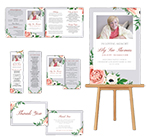 Complete Memorial Packages
Complete Memorial Packages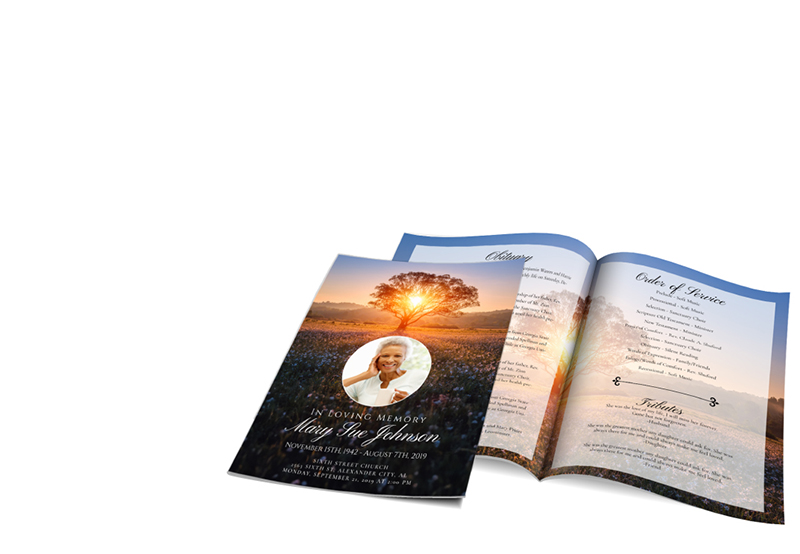
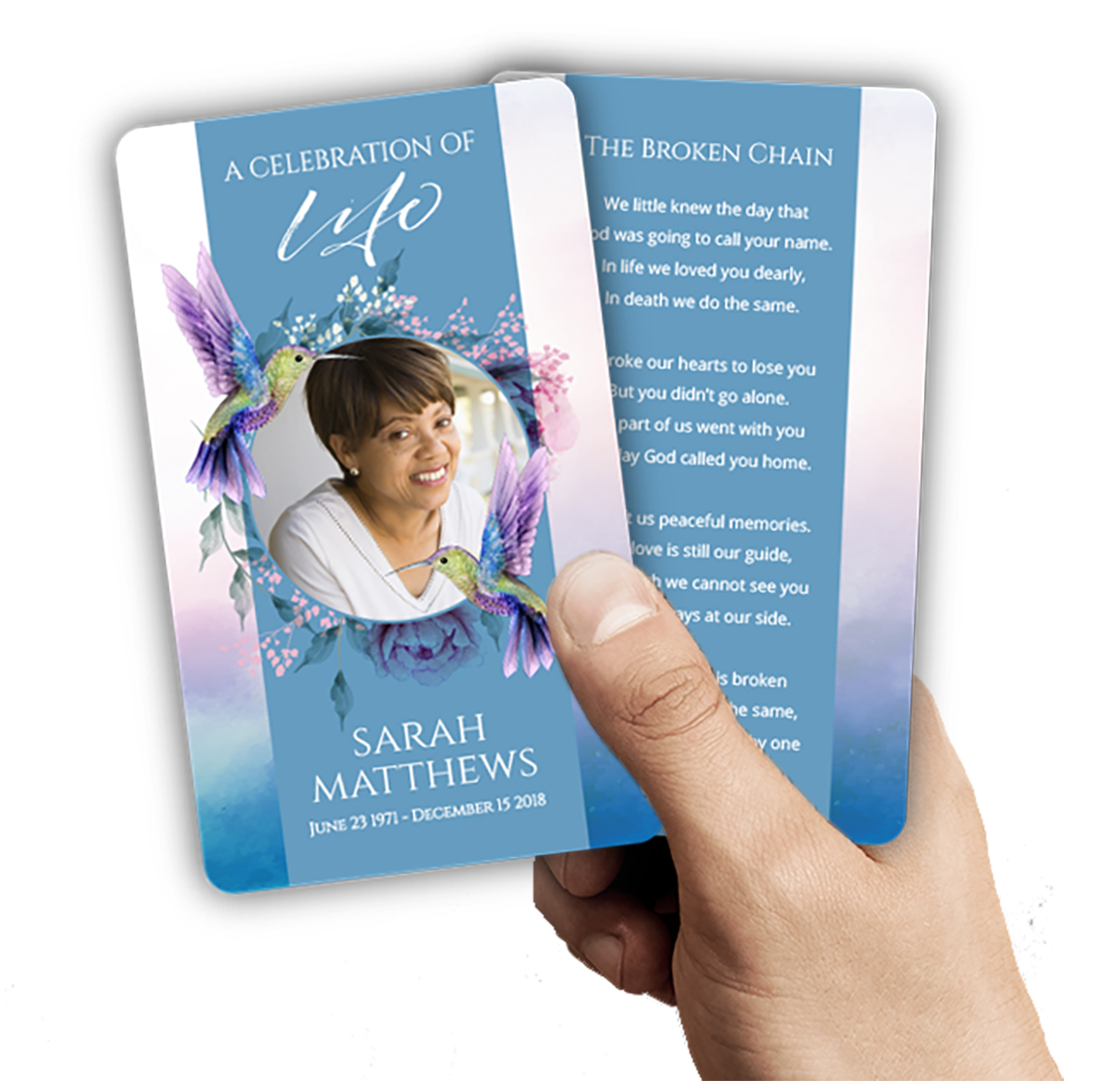 Cards & Bookmarks
Cards & Bookmarks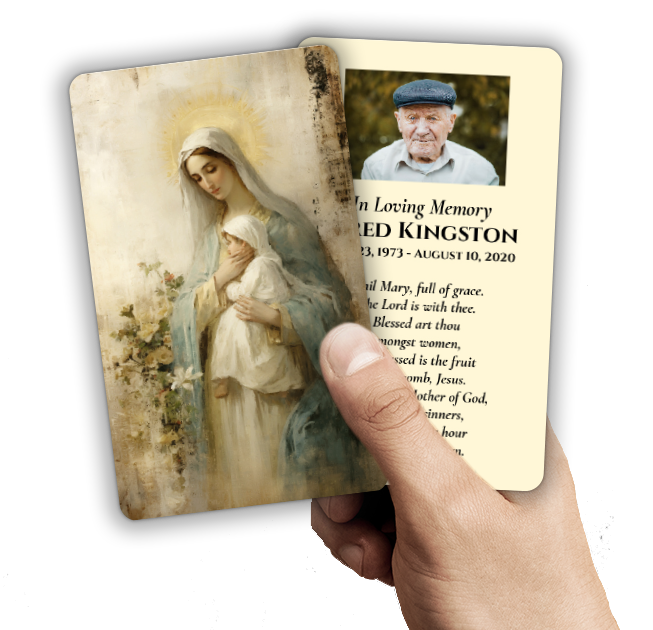 Saint Prayer Cards
Saint Prayer Cards Folded Memorial Cards
Folded Memorial Cards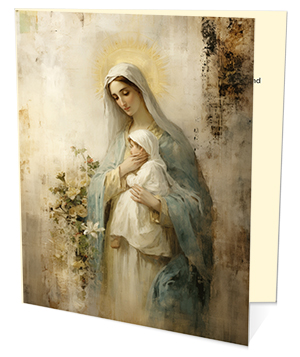 Folded Holy Cards
Folded Holy Cards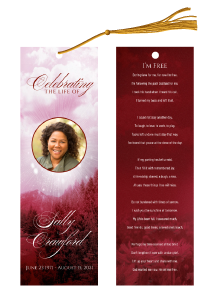 Memorial Bookmarks
Memorial Bookmarks Thank You Cards
Thank You Cards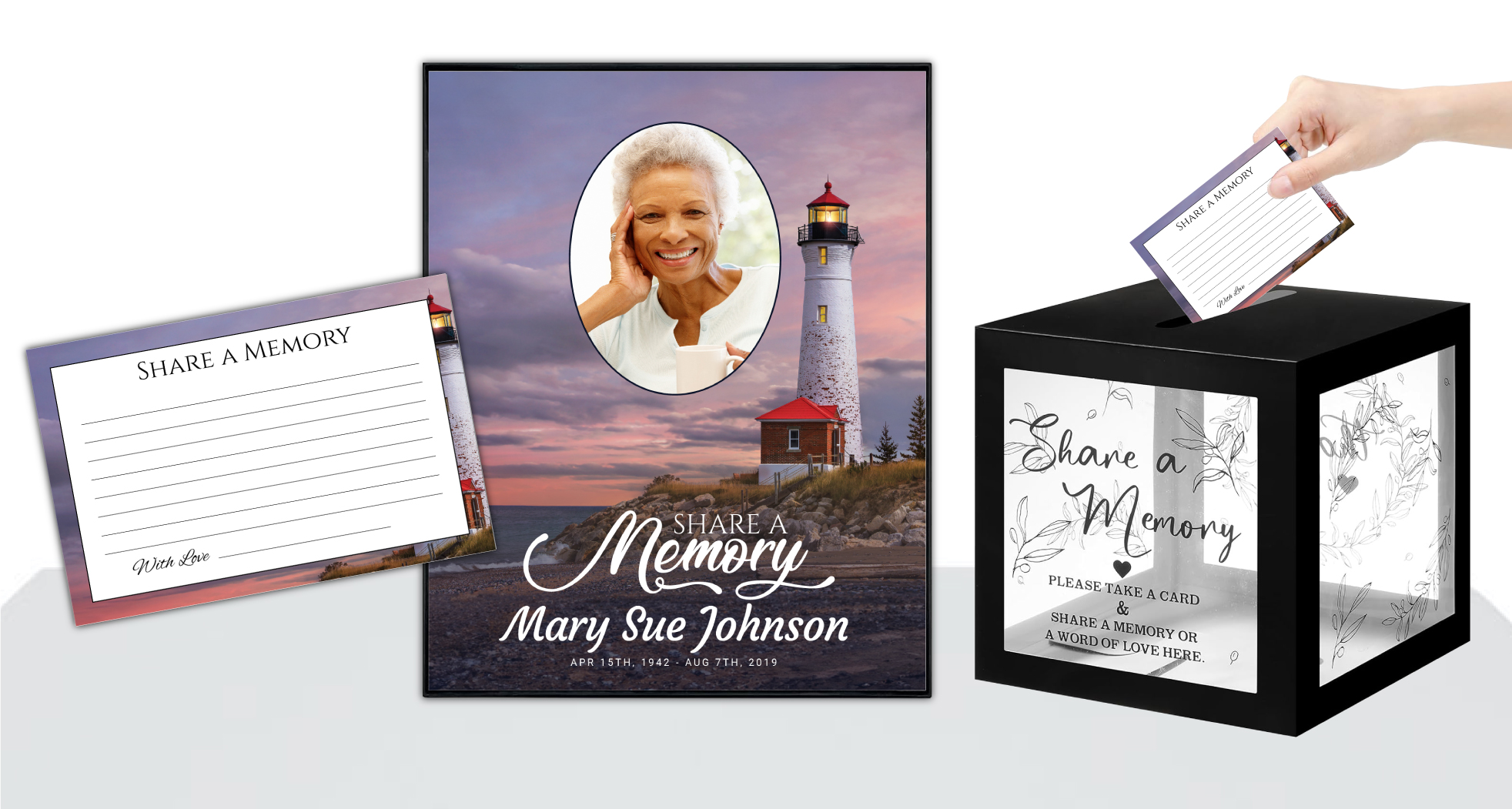 Share-A-Memory Cards
Share-A-Memory Cards Memorial Magnets
Memorial Magnets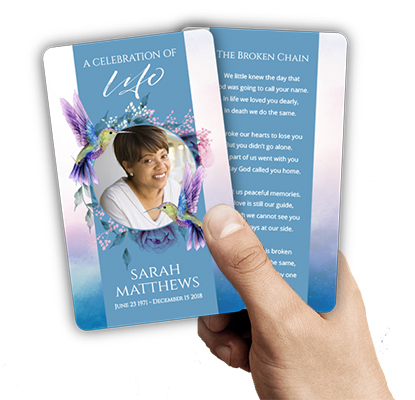
 Memorial Posters
Memorial Posters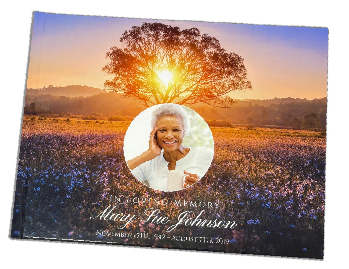 Guest Books
Guest Books Slide Shows
Slide Shows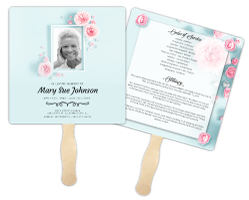 Memorial Fans
Memorial Fans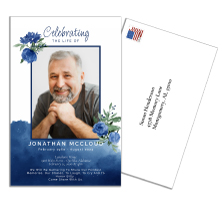 Death Announcements
Death Announcements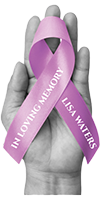 Take Away Keepsakes
Take Away Keepsakes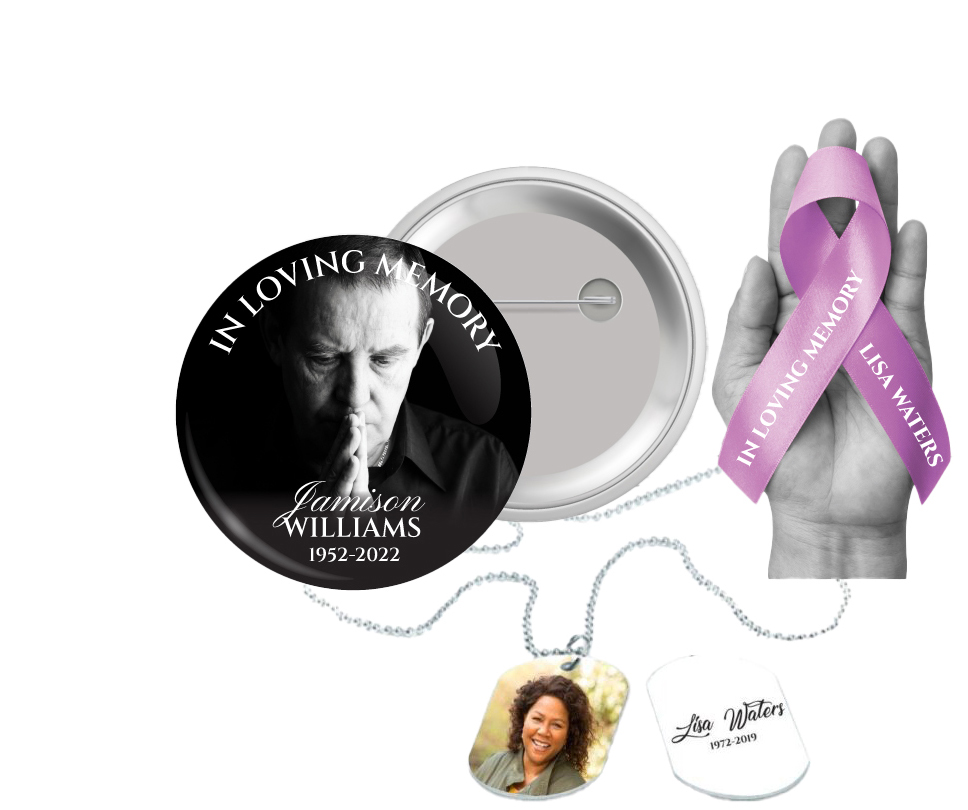
 Church Products
Church Products